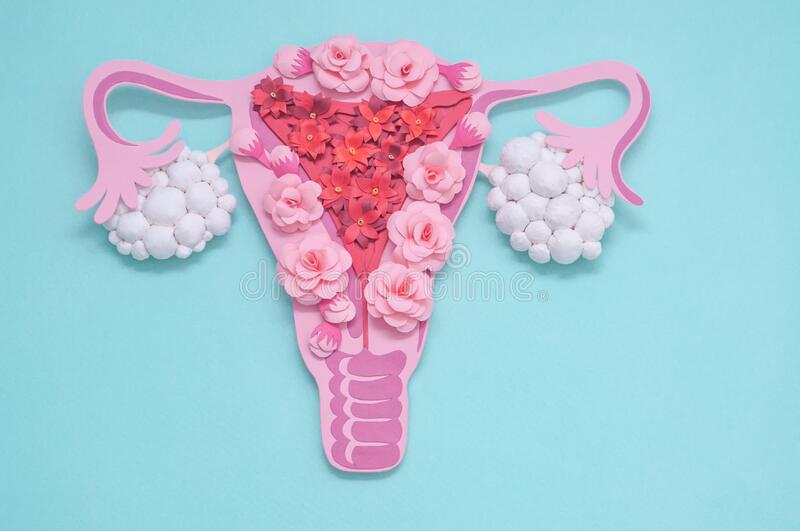Όχι και τόσο σπάνια, η εγκυμοσύνη συστήνεται σε ασθενείς με ενδομητρίωση ώστε να ‘’θεραπευτεί’’ η νόσος (ή ,τουλάχιστον, να βελτιωθούν τα συμπτώματα της ενδομητρίωσης). Η εγκυμοσύνη δεν είναι θεραπεία της ενδομητρίωσης, ωστόσο, συχνά ξεχνάμε την επίδραση αυτής της συμβουλής προς τη ψυχολογία των ασθενών μας. Η συζήτηση για μια ενδεχόμενη εγκυμοσύνη είναι, εξ’ ορισμού, ευαίσθητο θέμα και μπορεί να μην αποτελεί προτεραιότητα για τις ασθενείς με ενδομητρίωση (1). Μια πρόσφατη μελέτη εξέτασε αυτό το θέμα, καταδεικνύοντας μια ισχυρή επίδραση της συμβουλευτικής για εγκυμοσύνη σε πληθώρα τομέων ζωής των ασθενών με ενδομητρίωση (2).
Πρέπει να θυμόμαστε πως η υπογονιμότητα είναι συνήθης σε ασθενείς με ενδομητρίωση (3), μέσω ενός συνδυασμού μηχανισμών. Μια συστηματική ανασκόπηση δεν κατέδειξε πως η εγκυμοσύνη μειώνει τις εστίες ενδομητρίωσης (4), και μια σημαντική επιστημονική κοινότητα (ESHRE) δημοσίευσε σχετική κατευθυντήρια οδηγία στην οποία η εγκυμοσύνη δεν συστήνεται ως θεραπεία της ενδομητρίωσης (5).
Στην εν λόγω μελέτη (2), τα αποτελέσματα προέκυψαν από ένα online ερωτηματολόγιο που συμπλήρωσαν ασθενείς με διάγνωση ενδομητρίωσης. Το ερωτηματολόγιο είχε 65 στοιχεία, με συνδυασμό ανοιχτών και κλειστών ερωτήσεων. Αυτή η μελέτη επικεντρώθηκε στις απαντήσεις που έδωσαν οι συμμετέχουσες στην ερώτηση ‘’ Μπορείτε να μας πείτε πώς η συμβουλή για εγκυμοσύνη επηρέασε τη ζωή σας τους ερχόμενους 12 μήνες?’’
Από τις 3347 συμμετέχουσες, 1892 απάντησαν σε αυτήν την ερώτηση, με τις περισσότερες να έχουν λάβει τη διάγνωση μετά από χειρουργείο. Σε περίπου 9 από τις 10 περιπτώσεις, η συμβουλή για εγκυμοσύνη προήλθε από επαγγελματία υγείας, με το 72% να είναι γυναικολόγοι. Αξίζει να σημειωθεί πως μόνο το 20% αυτών είχαν ζητήσει συμβουλή από τον γυναικολόγο για το πώς να μείνουν έγκυες. 3 ήταν οι κύριοι λόγοι για τους οποίους δόθηκε η συμβουλή για εγκυμοσύνη: 1. Ως μέθοδο αντιμετώπισης των συμπτωμάτων της ενδομητρίωσης (68.2%) 2. Επειδή η ενδομητρίωση επηρρεάζει τη γονιμότητα (56.1%) και 3. Ως θεραπεία της νόσου (36.8%). Στο 37% συστήθηκε να μείνουν έγκυες άμεσα, ωστόσο, λιγότεροι από τους μισούς επαγγελματίες υγείας ρώτησαν τις ασθενείς αν τους ενδιέφερε άμεσα μια εγκυμοσύνη. Λιγότερο από 20% εξέφρασαν ενδιαφέρον για εγκυμοσύνη τη δεδομένη στιγμή και σχεδόν οι μισές ανέφεραν πως ένιωσαν πολύ νέες για μια εγκυμοσύνη. Μόλις το ένα τρίτο των ασθενών αισθάνθηκε πως η συμβουλή που δέχθηκαν ήταν σωστή τη δεδομένη στιγμή.
Αναλύοντας την επίδραση της συμβουλευτικής στους συμμετέχοντες, οι συγγραφείς εντόπισαν συγκεκριμένες θεματικές: γνώσεις για την υγεία, αίσθημα πίεσης ή μη αποδοχής, επίδραση σε σημαντικές αποφάσεις ζωής, εμπειρία με το σύστημα υγείας, ψυχική υγεία και επίδραση στην κοινωνική ζωή. Συγκεκριμένα, μερικοί ασθενείς ανέφεραν πως η συμβουλή για εγκυμοσύνη βελτίωσε τις γνώσεις τους για την ενδομητρίωση, ενώ άλλοι ανέφεραν πως γνώριζαν ήδη πως η εγκυμοσύνη δεν είναι θεραπεία. Κάποιες ένιωσαν πίεση ενώ άλλες ανέφεραν πως η συμβουλή ήταν λανθασμένη, για πληθώρα λόγων. Σε μερικές ασθενείς, αυτή η συμβουλή οδήγησε σε μεγάλες αλλαγές στον προγραμματισμό της ζωής τους. Σε ορισμένες περιπτώσεις, υπήρξε αναντιστοιχία ανάμεσα στις προσδοκίες (π.χ. μεθόδους αντιμετώπισης του πόνου) και την προσφερόμενη συμβουλευτική, οδηγώντας ακόμη και σε απώλεια εμπιστοσύνης στον ιατρικό κλάδο. Φυσικά, τα πράγματα ήταν διαφορετικά για όσες ασθενείς επιθυμούσαν μια εγκυμοσύνη άμεσα. Εξαιρετικό ενδιαφέρον έχει η επίδραση της συμβουλευτικής για εγκυμοσύνη στην ψυχική υγεία των ασθενών, με ασθενείς να αναφέρουν αισθήματα στρες, ακόμη και πανικού, ενώ, σε ορισμένες περιπτώσεις, χρειάστηκε και η συνδρομή ψυχολόγου. Εν τέλει, ορισμένες ασθενείς ανέφεραν αρνητική επίδραση και στην σχέση τους, τη σεξουαλική ζωή τους αλλά και τη σχέση τους με μέλη της οικογένειας τους.
Η συγκεκριμένη μελέτη δεν είναι η μόνη που καταδεικνύει την επίδραση της συμβουλευτικής για εγκυμοσύνη σε ασθενείς με ενδομητρίωση (6-8). Φυσικά, εφόσον η ενδομητρίωση επηρεάζει τη γονιμότητα, η ορθή συμβουλευτική σχετικά με τη γονιμότητα (και όχι απαραίτητα την εγκυμοσύνη) ενδείκνυται σε αρκετές περιπτώσεις. Μια τέτοια συμβουλευτική μπορεί να περιλαμβάνει θέματα όπως ο έλεγχος των αποθεμάτων των ωοθηκών και η συντήρηση γονιμότητας και είναι, συνεπώς, μακράν πιο περίπλοκος από την συμβουλή για άμεση εγκυμοσύνη.
Η ενεργητική ακρόαση (active listening) αλλά και η τοποθέτηση των επιθυμιών και των ανησυχιών της ασθενούς στο επίκεντρο της κουβέντας ιατρού-ασθενούς οφείλουν να είναι προτεραιότητες. Υπάρχει άμεση ανάγκη για βελτίωση της γνώσης των γυναικολόγων σχετικά με τη νόσο της ενδομητρίωσης (9,10), ενώ αναμένεται πως η βελτίωση στην εκπαίδευση θα οδηγήσει στην προσφορά καλύτερης φροντίδας σε ασθενείς με ενδομητρίωση.
Αναφορές:
- Young K, Fisher J, Kirkman M. Endometriosis and fertility: women’s accounts of healthcare. Hum Reprod. 2016;31(3):554–62. https://doi.org/10.1093/ humrep/dev337.
- Sirohi, D., Freedman, S., Freedman, L. et al. Patient experiences of being advised by a healthcare professional to get pregnant to manage or treat endometriosis: a cross-sectional study. BMC Women’s Health 23, 638 (2023). https://doi.org/10.1186/s12905-023-02794-2.
- Coccia ME, Rizzello F, Cammilli F, Bracco GL, Scarselli G. Endometriosis and infertility Surgery and ART: an integrated approach for successful management. Eur J Obstet Gynecol Reprod Biol. 2008;138(1):54–9. https://doi. org/10.1016/j.ejogrb.2007.11.010.
- Young K, Fisher J, Kirkman M. Endometriosis and fertility: women’s accounts of healthcare. Hum Reprod. 2016;31(3):554–62. https://doi.org/10.1093/ humrep/dev337.
- Becker CM, Bokor A, Heikinheimo O, Horne A, Jansen F, Kiesel L, et al. ESHRE guideline: endometriosis. Hum Reprod Open. 2022;2022(2):hoac009. https:// doi.org/10.1093/hropen/hoac009.
- Facchin F, Saita E, Barbara G, Dridi D, Vercellini P. Free butterflies will come out of these deep wounds: a grounded theory of how endometriosis affects women’s psychological health. J Health Psychol. 2018;23(4):538–49. https:// doi.org/10.1177/1359105316688952.
- Gomez AM, Arteaga S, Ingraham N, Arcara J. Medical conditions, pregnancy perspectives and contraceptive decision-making among young people: an exploratory, qualitative analysis. Contraception. 2019;100(1):72–8. https://doi. org/10.1016/j.contraception.2019.03.046.
- Plotkin KM. Stolen adolescence: the experience of adolescent girls with endometriosis: University of Massachusetts Amherst. DOI: Not available; 2004.
- Rowe HJ, Hammarberg K, Dwyer S, Camilleri R, Fisher JR. Improving clinical care for women with endometriosis: qualitative analysis of women’s and health professionals’ views. J of Psychosomatic Obstetrics and Gynecology. 2021;42(3):174–80. https://doi.org/10.1080/0167482X.2019.1678022.
- Grigoriadis G, Roman H, Kalaitzopoulos DR, Christoforidis N, Pados G, Daniilidis A. Diagnosis of Endometriosis by Transvaginal Ultrasound: An Online Survey of Gynecologists Practising in Greece. Cureus. 2023 Apr 21;15(4):e37950. doi: 10.7759/cureus.37950.

